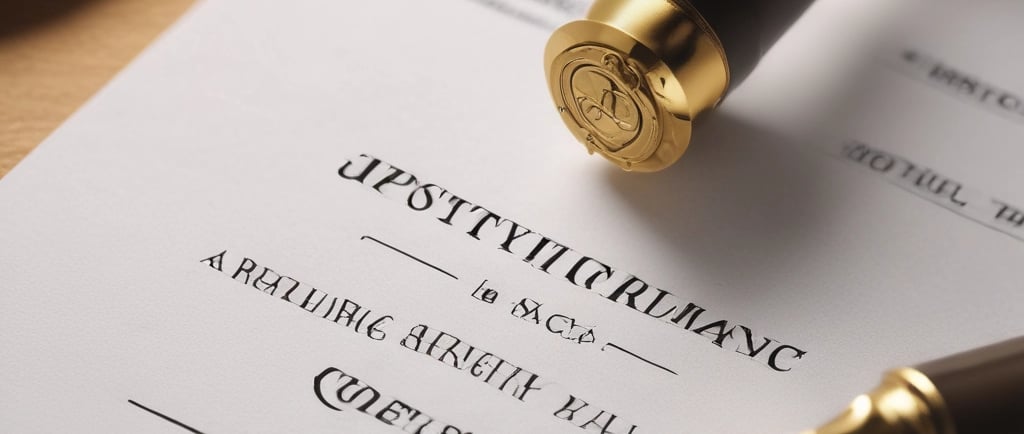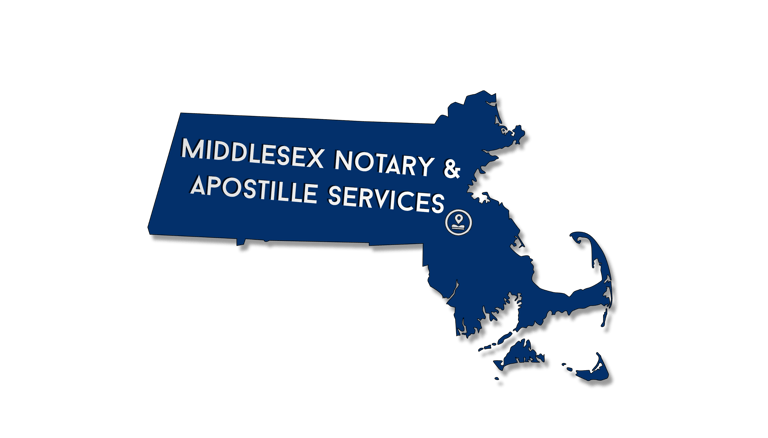Notarizing Foreign Documents in Massachusetts: A Comprehensive Guide
11/22/20257 min read


Understanding Notarization
Notarization is a legal process that serves as a means of verifying the authenticity of signatures and the credibility of documents. The core function of notarization is to deter fraud and ensure that the individuals who sign a document are doing so willingly and with an understanding of its content. In essence, a notary public acts as an impartial witness to this process and plays a crucial role in the realm of document validation.
The role of a notary public extends beyond merely witnessing signatures. A notary verifies the identity of the signatories, confirms their understanding of the document, and determines that they are not signing under duress or coercion. This verification process is vital, particularly when dealing with foreign documents, as the stakes of authenticity can be significantly higher in an international context. Not only does notarization help establish the legitimacy of the documents, but it also enhances their acceptance by foreign authorities.
In legal terms, notarization provides an added layer of assurance. Many institutions and courts require notarized documents to be considered valid, which underscores the importance of this service. For individuals looking to notarize foreign documents in Massachusetts, the need for a notary willing to handle international agreements and treaties becomes apparent. This is crucial, especially given that various countries may have different requirements regarding document authentication. By obtaining notarization, individuals can be more confident that their foreign documents will be recognized and accepted both domestically and internationally.
Thus, understanding notarization is fundamental for anyone dealing with foreign documents in Massachusetts. It protects the interests of all parties involved and is an essential step in the preparation of legal paperwork intended for use beyond local jurisdictions.
Why Notarize Foreign Documents?
The notarization of foreign documents in Massachusetts is an essential practice that serves various purposes, especially in the context of international dealings. One primary reason for notarizing such documents is to authenticate their legitimacy, which is crucial for international business transactions. A notarized document reassures all parties involved that the signatures are genuine and the contents are accurate, thereby facilitating trust in cross-border agreements and reducing the risk of fraud.
Moreover, in immigration processes, notarization plays a pivotal role in ensuring that foreign legal documents meet the requirements of U.S. authorities. For instance, applications for visas, residency, or citizenship often necessitate notarized copies of birth certificates, marriage licenses, and other pivotal records from one’s home country. Without proper notarization, these documents may be dismissed, leading to delays or denials in the immigration process.
Additionally, personal matters such as marriage or property ownership can also necessitate the notarization of foreign documents. In these cases, the notarization process can mitigate misunderstandings and confirm the authenticity of the documents presented. It ensures that any agreements made, whether related to marriage or the acquisition of property, are recognized and enforceable under local laws, thereby safeguarding the rights of all parties involved.
Failing to notarize foreign documents can lead to significant repercussions. Unnotarized documents may be rejected by authorities, create legal disputes, or result in financial losses—particularly in real estate transactions and business contracts where clarity and validation are paramount. Therefore, understanding the importance of notarization is vital for individuals and businesses involved in international activities in Massachusetts.
Requirements for Notarizing Foreign Documents in Massachusetts
Notarizing foreign documents in Massachusetts entails adhering to specific requirements and processes designed to ensure the legitimacy and integrity of the notarization. These requirements primarily focus on identifying signers, determining acceptable types of documents, and preparing any necessary additional paperwork.
Firstly, the identification standards for signers are critical. Massachusetts law mandates that all signers present valid forms of identification. Acceptable forms include government-issued IDs such as a passport or driver's license, which must have a photograph and essential personal information such as the signer's full name and signature. If a signer does not possess a government-issued ID, a credible witness who can identify the signer may be used, though this is less common. Furthermore, documents must be presented in English or accompanied by a certified translation, as this ensures that the notary comprehends the content and context of the documents being notarized.
Secondly, the types of documents that can be notarized include but are not limited to contracts, power of attorney forms, and various legal agreements. It is essential to verify that the document is eligible for notarization in Massachusetts. Some documents, such as wills or court documents, may have additional stipulations or restrictions, which the signer should review before proceeding.
Additional paperwork may be necessary in some circumstances, such as an oath or affidavit, especially when the document involves a declaration. Understanding specific state guidelines and, if applicable, federal regulations can ease the notarization process. Common challenges faced include language barriers, the lack of appropriate identification, and confusion surrounding the types of permissible documents. Planning ahead can mitigate these obstacles and prepare signers for a successful notarization experience.
Finding a Notary Public in Massachusetts
Locating a qualified notary public in Massachusetts who can efficiently handle foreign documents is a crucial step in the notarization process. Whether you require assistance for personal, legal, or business purposes, identifying the right notary can save time and provide assurance in the legitimacy of your documents. One of the most effective methods to find a notary is by conducting a simple online search. Various websites and platforms specialize in connecting individuals with notary services. Utilizing terms like "notary public near me" or "notary services in Massachusetts" can yield a list of potential candidates.
When evaluating a notary, it is vital to check their credentials and ensure they are licensed and bonded. The Massachusetts Secretary of the Commonwealth provides a searchable database of commissioned notaries. Verifying a notary's commission status can prevent complications and ensure your documents are notarized correctly. Pay attention to any reviews or testimonials from previous clients, as they may offer insights into the notary's reliability and efficiency.
Consider the specific services offered by the notary, as not all notaries may be equipped to deal with foreign documents. Inquire whether they are familiar with international notarization processes and have experience handling such documents. Additionally, pricing may vary among notaries, so discussing fees upfront can prevent misunderstandings later. Notaries may charge a standard fee for their services, but additional costs can arise depending on the complexity of the document or if traveling to a location is required.
In conclusion, finding a notary public in Massachusetts requires careful consideration and research. By utilizing online resources, verifying credentials, and understanding the services offered, you can ensure that your foreign documents are handled professionally and efficiently.
The Notarization Process for Foreign Documents
Notarizing foreign documents in Massachusetts requires a systematic approach to ensure the validity and acceptance of the paperwork. The process begins with scheduling an appointment with a licensed notary public who is familiar with handling international documentation. It is important to prepare adequately for this meeting, as the notary will provide specific guidance on what to bring.
When attending the appointment, it is essential to understand that you must present a valid form of identification, such as a passport or state-issued ID, to verify your identity. Additionally, the documents in question should be in their original form, as photocopies are not typically accepted. It may also be prudent to have translations available for documents that are not in English, depending on the requirements of the receiving entity.
Once at the appointment, the notary will review the documents to ensure they comply with local regulations. The notary's primary role is to witness the signing of the documents and to confirm that you understand the content of what you are signing, thereby preventing fraud. In some cases, the notary may need to complete additional steps, such as certifying the documents or providing an apostille, depending on the destination country’s requirements.
The duration of the notarization process can vary based on a range of factors, including the complexity of the documents and the notary’s workload. Typically, however, appointments can be completed in approximately 15 to 30 minutes. Notaries may charge different fees for their services, commonly ranging from $10 to $50 per document, so it is advisable to inquire about costs in advance to avoid any surprises during the appointment. Understanding these elements of the notarization process will help ensure a smooth experience when notarizing foreign documents in Massachusetts.
Additional Considerations for Foreign Documents
When it comes to notarizing foreign documents in Massachusetts, several additional factors must be carefully considered to ensure compliance with both U.S. and foreign legal standards. One primary aspect is the need for translation services. In many cases, documents originating from non-English speaking countries may require a certified translation to be accurately understood by U.S. authorities. It is essential to ensure that the translation is performed by a qualified professional and is attested to maintain its credibility. This step is crucial, as any discrepancies in translation may lead to complications or rejections during the notarization process.
Another significant consideration is the requirement for an apostille. An apostille is a certification that verifies the authenticity of a document for use in foreign countries that are parties to the Hague Convention. This may be a vital step when dealing with documents intended for international use. In Massachusetts, applicants must submit the initial documents to the designated state authorities to obtain the necessary apostille. It is advisable to clarify whether the destination country requires an apostille or if a different form of legalization is necessary, as this can vary significantly based on jurisdiction.
The impact of foreign laws on the notarization process should also be taken into account. Each country has its own regulations and standards concerning trade agreements, legal documentation practices, and recognition of U.S.-issued notarizations. Understanding these factors will facilitate the smooth notarization of foreign documents. Engaging a notary public experienced with international documentation can offer valuable insights and guidance tailored to the specific requirements of foreign jurisdictions. By adhering to these considerations, individuals and businesses can ensure the effective handling of foreign documents in compliance with applicable legal standards.
Conclusion and Final Tips
In wrapping up our comprehensive guide on notarizing foreign documents in Massachusetts, it is essential to highlight the pivotal points to keep in mind. The process of notarizing foreign documents can appear daunting; however, with adequate preparation and understanding of the requirements, individuals can navigate it smoothly. Key elements include grasping the specific documentation needed, recognizing the importance of having translations if necessary, and knowing when to consult legal counsel for complex situations.
As a vital step, ensure that all the documents intended for notarization are complete and clearly legible. Alongside this, consider the varying laws that govern notarization both at the state level and in the country of the document's origin. Having a clear understanding of these regulations is crucial, as it can save time and prevent complications during the notarization process. Prepare any required supporting documents, such as identification, which can play a significant role in the efficient facilitation of the notarization.
Moreover, research local notaries who are experienced in handling foreign documents. Some notaries may specialize in international transactions, and their expertise can provide confidence and assurance throughout the process. Don't hesitate to ask questions regarding their familiarity with the specific requirements for the type of document you need notarized.
Finally, various resources, including state websites and legal aid organizations, can serve as reliable guides throughout this undertaking. Being well-informed and adequately prepared before seeking notarization will not only aid in achieving compliance with regulations but also enhance the overall efficiency of the process. With this knowledge, you can approach the notarization of foreign documents in Massachusetts with greater assurance and clarity.
Need notary?
Need a notary or apostille today? Fill out the form below and our team will get back to you within minutes.
Phone
(781) 226-8331
Available 24/7 — Call or Text Anytime
© 2025. All rights reserved.
